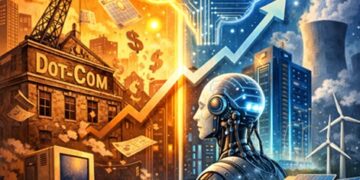Computers have become one of the most transformative inventions of the modern era. They have reshaped industries, revolutionized communication, and redefined the way people live and work. In today’s digital age, the role of computers extends far beyond simple calculations—they serve as the foundation of innovation, connectivity, and efficiency across all sectors of society.
- Transformation in Education
Computers have brought a significant transformation in the field of education. Digital learning platforms, virtual classrooms, and online libraries have made education more accessible and interactive. Students can now collaborate globally, while educators use multimedia tools and AI-powered systems to enhance teaching effectiveness and learning outcomes.
- Revolution in Business Operations
In the corporate world, computers have revolutionized business operations. They facilitate data analysis, project management, financial planning, and customer relationship management. E-commerce platforms, digital marketing, and automation have allowed businesses to reach global markets, reduce costs, and improve productivity. The integration of AI and analytics further enables companies to make informed, strategic decisions.
- Evolution of Communication
The computer has completely transformed the way people communicate. With the help of the internet, emails, video conferencing, and social media platforms, global communication has become instant and efficient. This evolution has strengthened professional networks, encouraged cross-border collaboration, and brought people closer than ever before.
- Enhancing Daily Life and Services
Computers now influence nearly every aspect of daily life. From online banking and healthcare management to transportation and entertainment, computers make daily tasks simpler and faster. In hospitals, they support patient data management; in households, they are used for online learning, shopping, and multimedia activities—improving convenience and quality of life.
- Shaping Work Culture and Innovation
The computer has transformed how work is performed in the modern workplace. Remote work, cloud computing, and artificial intelligence have created flexible and efficient work environments. Employees now rely on digital tools for collaboration, problem-solving, and decision-making, leading to greater innovation and creativity across industries.
Conclusion
Computers are not merely tools—they are catalysts of change. They have revolutionized education, business, communication, and everyday life. As technology continues to evolve, computers will remain at the heart of progress, driving innovation, enhancing efficiency, and shaping the intelligent world of tomorrow.
The writer is an MBA Student


